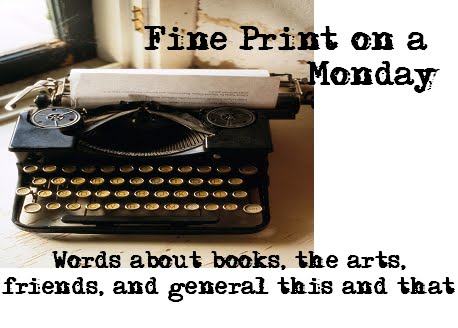
I own a bookstore. With a single key stroke on my computer, I can order just about any book in print for myself, and still, friends loan me books all the time...unsolicited. My loaner pile consists of In the Lake of the Woods, from Pat, Breakfast with Buddha from Tom, A Thousand Splendid Suns from someone, a lot of insisting by Brenda that I read the "Sisters Grimm" books (but so far no copies have appeared!) and the book you see on the left, from Todd.
My intentions are always good. I like getting suggestions from others, and if they believe in a book so strongly that they bring me a copy to read, then I will read it...at some point. Since I mentioned Waiting for Godot in a previous post, it seemed time to read these Sartre plays, since they are structurally and philosophically similar to Beckett's work. I can't say that I enjoy the existentialists and their premise that we have total freedom but are rendered incapable of living fully because we are trapped by responsibility. Sartre goes so far as to call life a "useless passion." Not a happy bunch, for sure.
There are both spiritual and atheist existentialists. The whole lot of them are cranky, but Sartre is the crankiest. He even declined the Nobel Prize for Literature in 1964 citing his '"integrity as a writer" for his refusal. Oh well!
Despite Sartre's grim demeanor, I like his plays. His thesis of No Exit is "Hell is other people." That's quite a concept. In the play, three people are trapped together for eternity in a location with a couple doors that lead nowhere, and no mirrors. They only have each other. It's interesting that Sartre claims to be an atheist, yet he acknowledges the concept of eternity in this play. Each time I read the play, I think about what people would be the worst for me to spend forever with. Conversely, I am sure that I would be on many most unwanted lists. I prefer to flip the situation and answer an equally difficult question - "If you could choose two special people to spend eternity with, who would they be?" I am glad that some things in life are beyond our control!
On a happier note, I read a little book called Flight of the Hummingbird : A Parable for the Environment. It was my way of celebrating His Holiness the Dalai Lama's visit to Wisconsin. He wrote the afterword called " Universal Responsibility." This tiny book is a moving parable expressing the power of taking small steps to achieve a big goal. With origins among the Quechan people of South America, and the Haida of the North Pacific, this story has become a talisman for environmentalists and activists throughout the world. The book, simply illustrated by Michael Nicoll Yahgulanaas, inspires us all to act on behalf of the world's limited resources. Because it asserts that we can consciously make choices and do something, I am sure that Sarte would hate it. Too bad he didn't try opening the right doors.
**********
I received a funny little email from my friend, Colleen.
Why Did the chicken Cross the Road?
Oprah: Well, I understand that the chicken is having problems, which is why he wants to cross the road. So instead of having the chicken learn from his mistakes and take falls, which is a part of life, I am going to give this chicken a car so that he can just drive across the road and not live his life like the rest of the chickens.
Anderson Cooper - CNN: We have reason to believe there is a chicken, but he may have not yet been allowed access to the other side of the road.
Dr. Seuss: Did the chicken cross the road? Did he cross it with a toad? Yes, the chicken crossed the road, but why it crossed I've not been told.
And since we have talked a little philosophy in this post:
Aristotle: It is the nature of chickens to cross the road.

